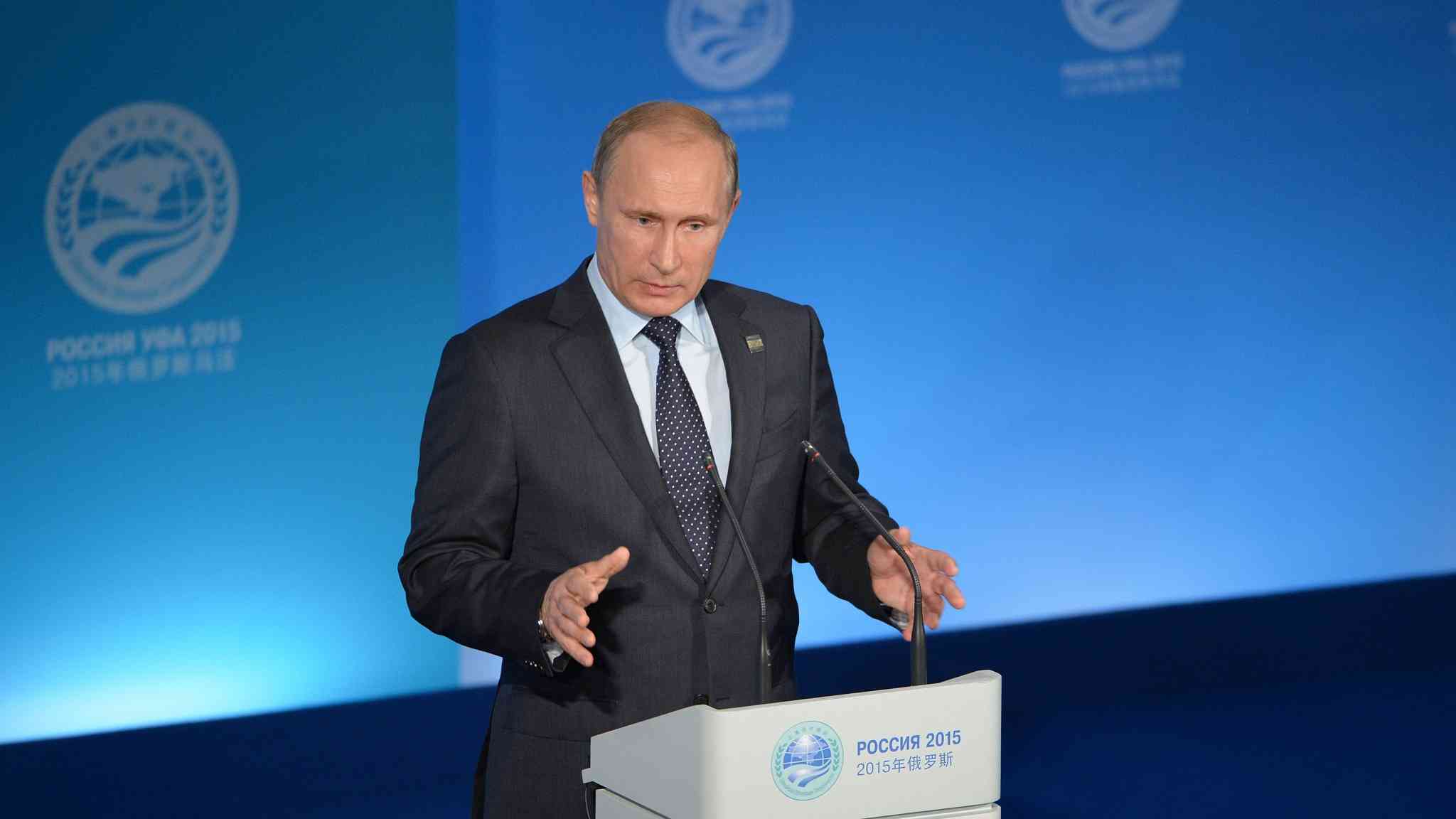As one of the founders of the Shanghai Cooperation Organization (SCO), Russia has always played a positive role in the organization's development and improvement after it took Look East foreign policy.
"Today, new full members join the Shanghai Cooperation Organization. The expansion of the SCO will undoubtedly contribute to ensuring that it will become more powerful and influential in the political, economic and humanitarian spheres," Russian President Vladimir Putin said, voicing his hopes at SCO's leaders’ meeting in 2017 Astana Summit as the SCO admitted new members.
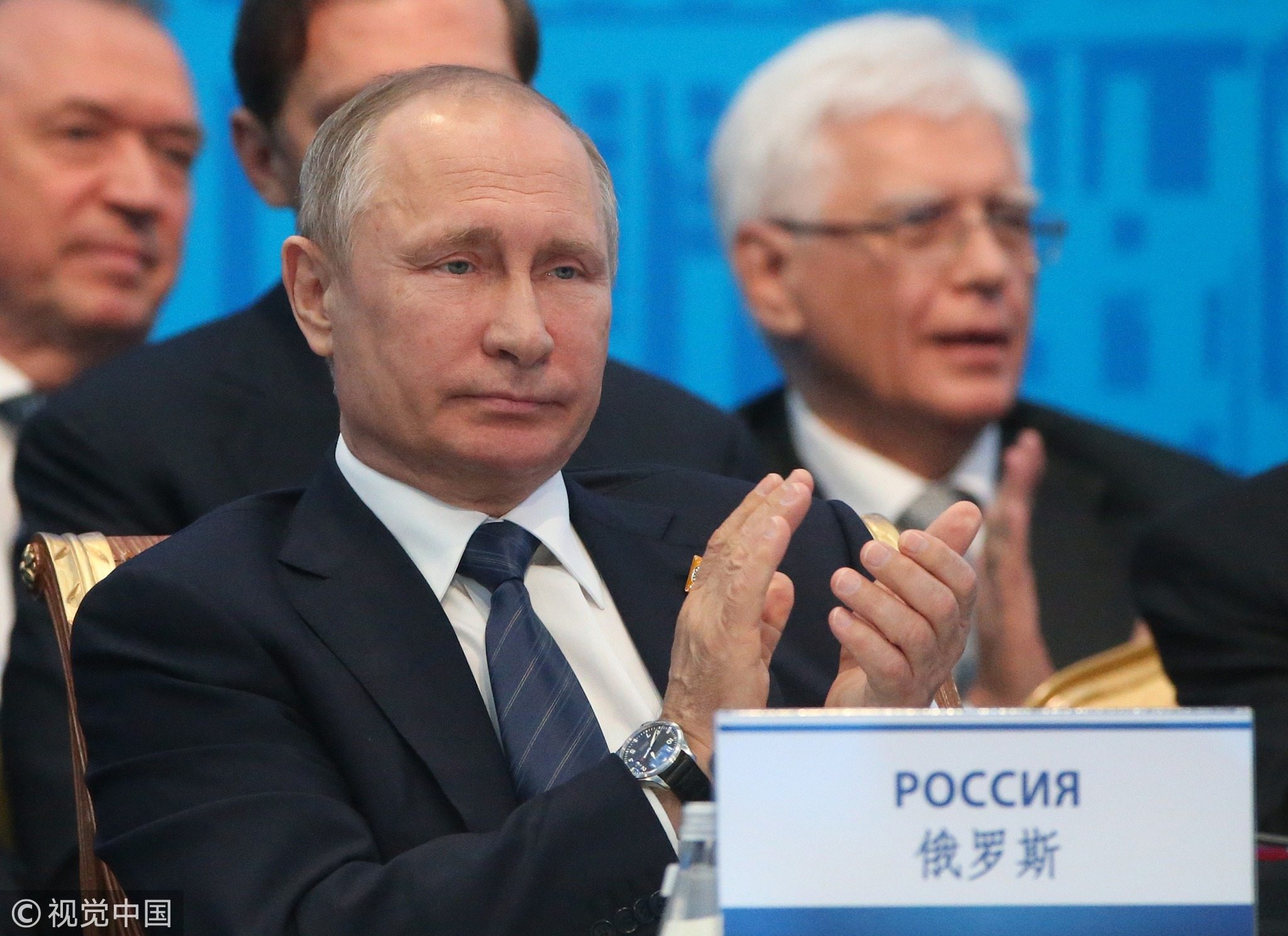
June 9, 2017: Russian President Vladimir Putin at the SCO Summit Meeting in Astana, Kazakhstan. /VCG Photo
June 9, 2017: Russian President Vladimir Putin at the SCO Summit Meeting in Astana, Kazakhstan. /VCG Photo
In general, political goals, security concerns, and economic interests outlined the aims and interests of Moscow's connection with the SCO.
Look East foreign policy
After the collapse of the former Soviet Union, Russian society experienced numerous internal and external difficulties. For the government, they have to identify the Russian identity on the basis of which to generate directions internal and foreign policy of the country.
In the first years of the new Russian Federation showed a westernized trend and ensured its economic reforms and foreign policies were all pro-Western.
However, as little signs of recovery in economy and society, the radical-nationalist party headed by Vladimir Zhirinovsky won victory in the 1993 parliamentary election. The country started to walk into a nationalist trend and recognized its identity should be separated from the West.
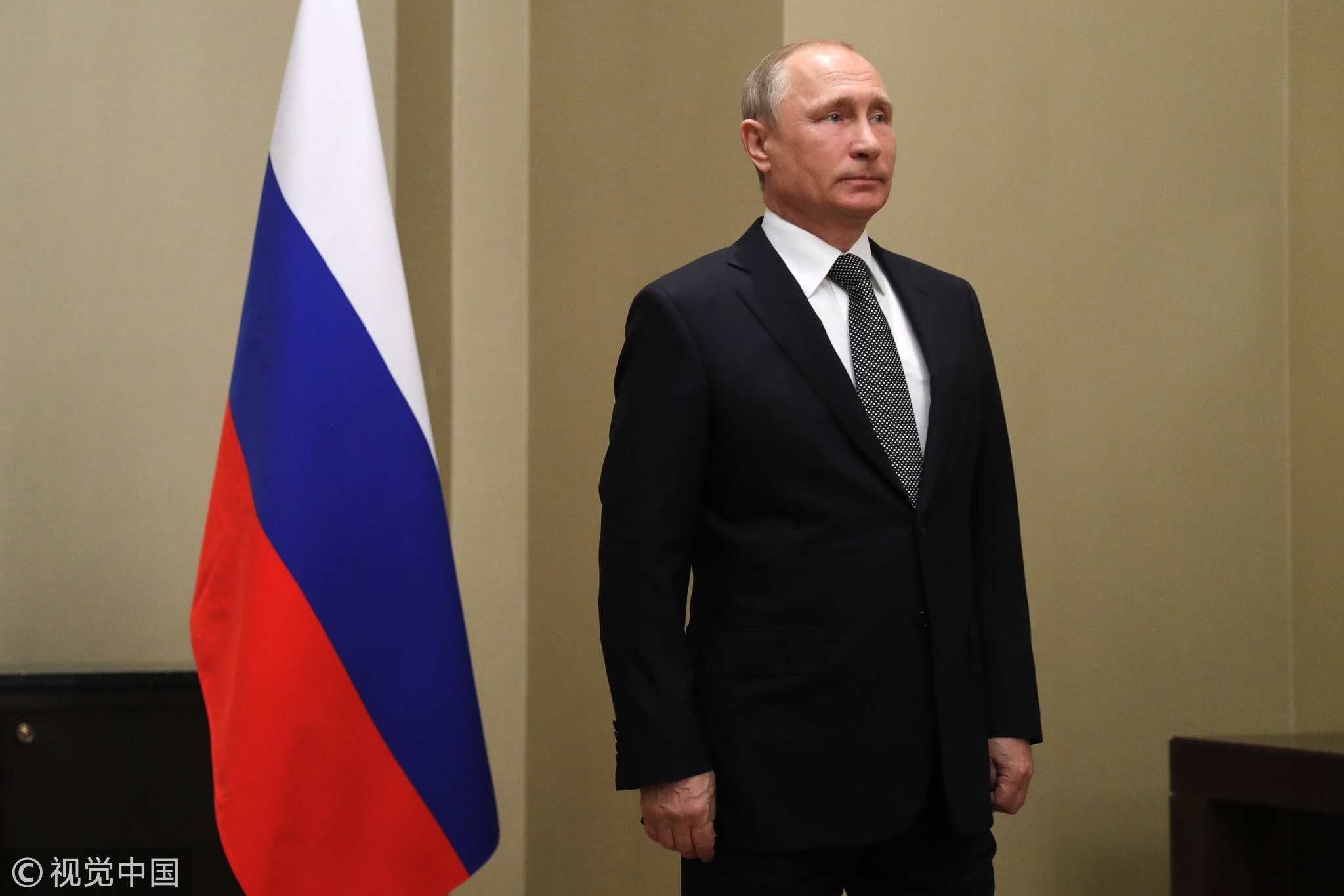
June 8, 2017: Russia's President Vladimir Putin is ready to talk with his Chinese counterpart Xi Jinping prior to the meeting of the SCO Council of Heads of State. /VCG Photo
June 8, 2017: Russia's President Vladimir Putin is ready to talk with his Chinese counterpart Xi Jinping prior to the meeting of the SCO Council of Heads of State. /VCG Photo
Moscow has officially departed from the pro-Western since former KGB head Yevgeny Primakov became the minister of Foreign Affairs in 1996 and Russian foreign policy started to include Eastern direction.
The formation of Shanghai Five grouping, the predecessor of the SCO, in April of 1996, joined by China, Kazakhstan, Kyrgyzstan, Russia, and Tajikistan should be considered one of the vital results of Primakov's Look East foreign policy.
With Putin came in office in 2000, he sped up his pivot to the East, which also levels up the possibility for the Shanghai Five to the SCO in 2001.
With this foreign policy, Russia, on the one hand, wanted to restore its traditional influence in the Central Asian region, and on the other hand, in global aspects, needs a regional instrument to counter any possibilities of building the unipolar world by the US.
Security issues can't be solved alone
Before restoring regional influence or enhancing global influence, Russia needed to ensure its own national unity and territorial integrity first.
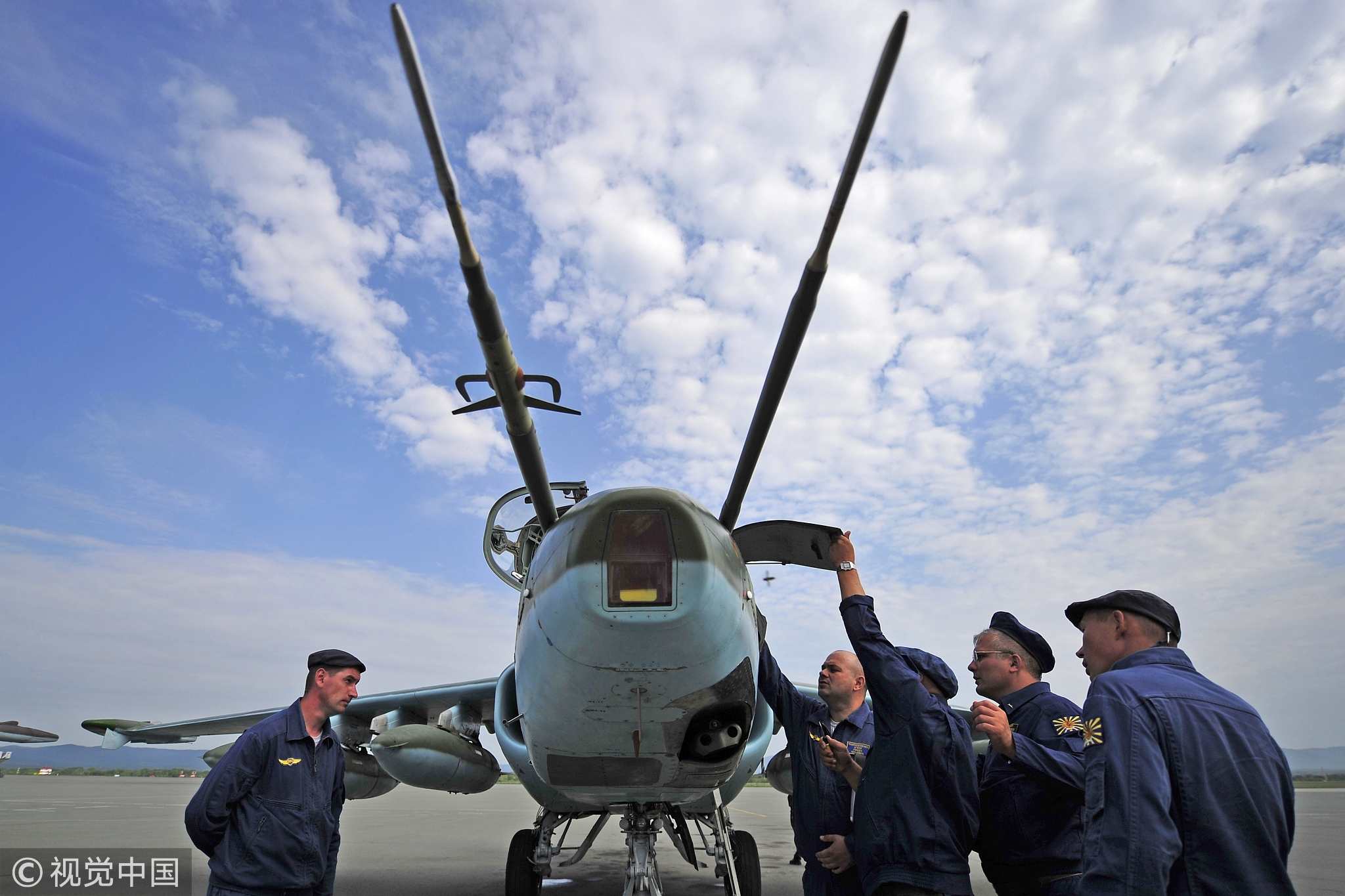
August 15, 2014: Su-25SM jet aircraft ground crew members representing Russia Eastern Military District air force unit are at work for the Peace Mission 2014 joint counter-terrorism exercises involving members of the SCO. /VCG Photo
August 15, 2014: Su-25SM jet aircraft ground crew members representing Russia Eastern Military District air force unit are at work for the Peace Mission 2014 joint counter-terrorism exercises involving members of the SCO. /VCG Photo
The presence of powerful separatist movements among different ethnic groups and extremist elements in different regions of Russia, especially in border areas threatened the national security of Russia.
Besides, in the Central Asian region, issues including drugs and arms trafficking are so widespread that Russia realized those security-related problems cannot be solved alone.
This was the motivation for the formation of the Shanghai Five and later the SCO which was tasked with combating the three evils – terrorism, extremism, and separatism.
At the group’s July 2000 summit (the first attended by President Putin), the leaders announced the organization’s intention to “wield significant influence not just in the region, but globally as well.”
With the addition of Uzbekistan at the June 2001 summit, the Shanghai Five became the SCO. Through holding anti-terrorism military exercises, including a plan of partnership for peace and voicing in one on the global stage, the organizations' influence in security has been greatly improved, matching Russia's wishes at the global level.
Economy needs new perspectives
The collapse of the former Soviet Union brought an economy slide period, the Russian Federation government needed to find new perspectives in the economy especially after the financial crisis of 1998.
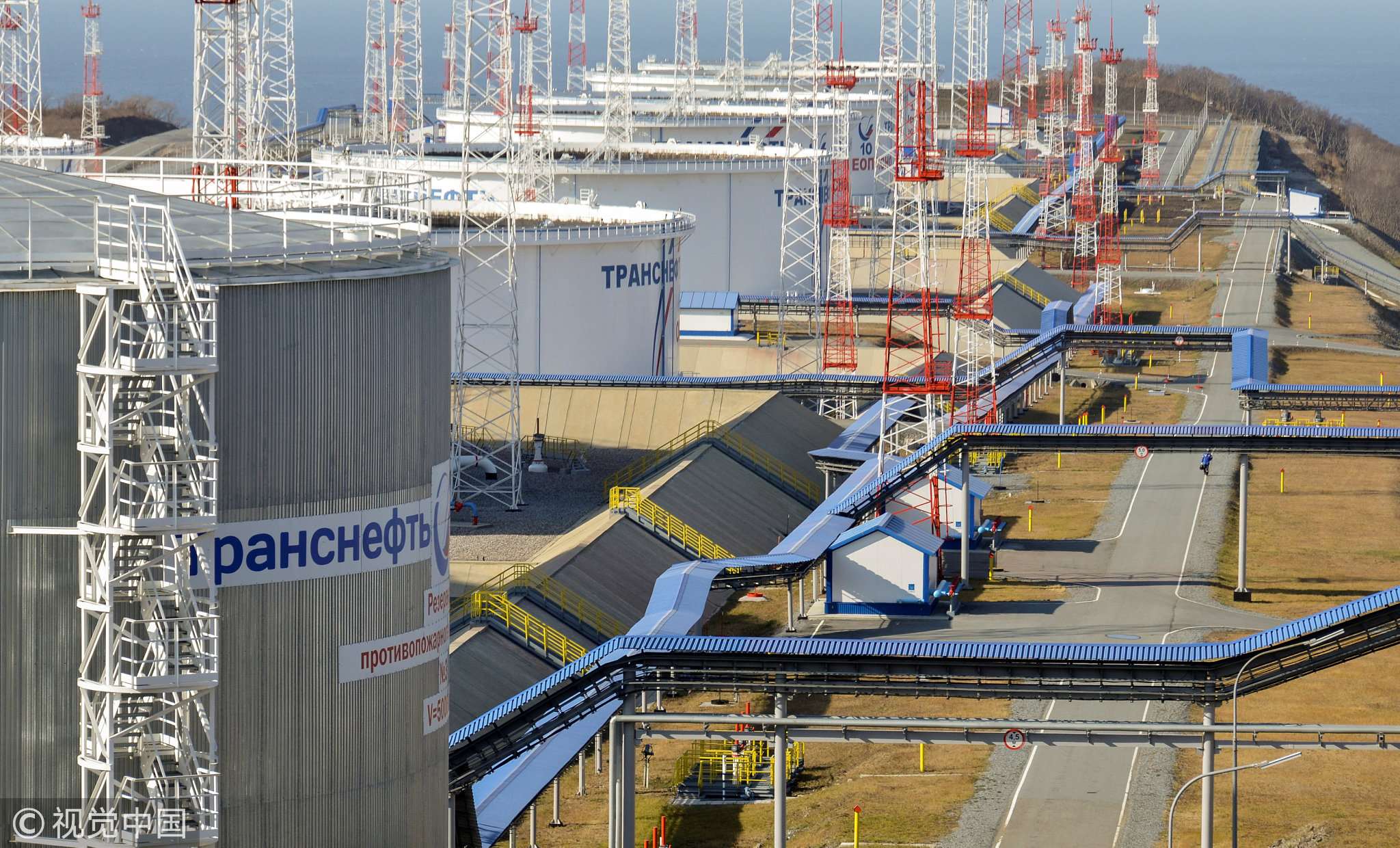
November 15, 2017: Oil tanks in the Transneft-Kozmino Port near the far eastern town of Nakhodka, Russia. /VCG Photo
November 15, 2017: Oil tanks in the Transneft-Kozmino Port near the far eastern town of Nakhodka, Russia. /VCG Photo
Oil revenues played an important role to save Russia from the economic recession. "The Energy Strategy of Russia for the period till 2020", approved in 2003, introduced Russia's energy strategy including ensuring exports of energy in diverse directions.
Although EU is Russia's traditional oil export market, the Western's worry on Russia to use energy as political leverage to pressure the EU has never ceased.
Unpredictable Russia-EU relations pushed Russia to find more markets and the Central Asia region became deal choice.
Under SCO's framework, Russia has put forward proposals for the establishment of the SCO energy club. It approved "the Concept long-term socially-economic development of the Russian Federation in Central Asia up to 2020 and the Concept of protection of national interests of Russia in Central Asia" to ensure Russia's long-term programs in the field of energy in Central Asia.
Notably, SCO's new members India and Pakistan are also experiencing energy shortage.
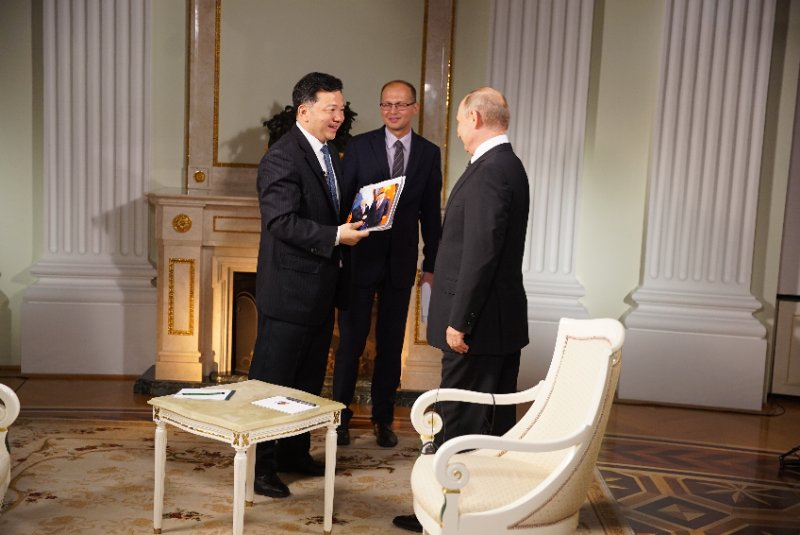
Shen Haixiong (L), president of the China Media Group, talks with Russian President Vladimir Putin (R). /CCTV Photo
Shen Haixiong (L), president of the China Media Group, talks with Russian President Vladimir Putin (R). /CCTV Photo
Putin has repeatedly voiced his support to further develop the SCO and in his latest interview with Shen Haixiong, president of the China Media Group, a broadcasting platform, including CGTN.
He said although the SCO started off as a low-profile group, with a primary goal of solving border issues between China, Russia, and the former Soviet Union members, it has evolved into one of the world's most powerful organizations.
(Top image, July 10, 2015: Russian President Vladimir Putin speaks at a press conference during the BRICS/SCO Summits – Russia 2015 in Ufa, Russia. /VCG Photo)

